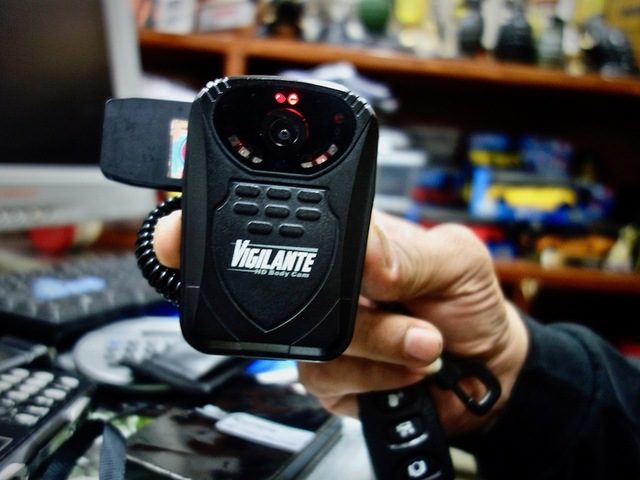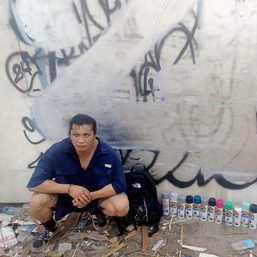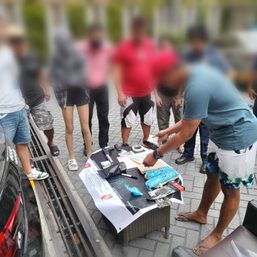SUMMARY
This is AI generated summarization, which may have errors. For context, always refer to the full article.

The Supreme Court en banc is considering requiring policemen to wear body cameras when serving warrants, addressing the pressing issue of alleged abuses during operations.
Rappler confirmed with well-informed sources that the issue was tackled during the virtual en banc session on Tuesday, March 16, and that the resolution had been assigned to a justice for drafting.
Supreme Court spokesperson Brian Keith Hosaka later confirmed it.
Initially, Hosaka said “the en banc approved the use of body cameras in the service of warrants but subject to the actual guidelines as may be set in the formal resolution to be issued by the Court.”
But in a message late afternoon, Hosaka said: “I would just like to make a clarification that the SC is considering the use of body cams and an actual and formal resolution would first have to be approved by the Court on this matter. So, it would be best for us to wait for this resolution.”
The resolution will then be circulated and voted on.
The Supreme Court was acting on its own. There was no petition filed. Lawyers have been calling on the High Court to be more proactive in addressing alleged human rights abuses by government agents.
Sources privy to the information said that part of this action would be to consult with other sectors, including the Philippine National Police (PNP). The PNP had earlier bought units of body cameras to address demands for transparency in their operations.
Human rights lawyers earlier proposed this in the wake of the police’s Bloody Sunday sweep in Calabarzon, where 9 activists were killed, drawing strong criticism from various groups. Police, who were serving search warrants, had claimed that the latter shot at them first.
Lawyers have also called on the Supreme Court to review the rules on search warrants, which would include a review of court processes, or actions of the judges. There’s no information yet if this had been tackled.
In Naga City, a judge sought a special dialogue with local police to avoid “unnecessary killings” in police operations.
The Supreme Court is under increasing pressure to also address the high number of lawyers being killed, and the seeming trend among cops asking courts for data meant to profile activists and their lawyers. – Rappler.com
Add a comment
How does this make you feel?




There are no comments yet. Add your comment to start the conversation.